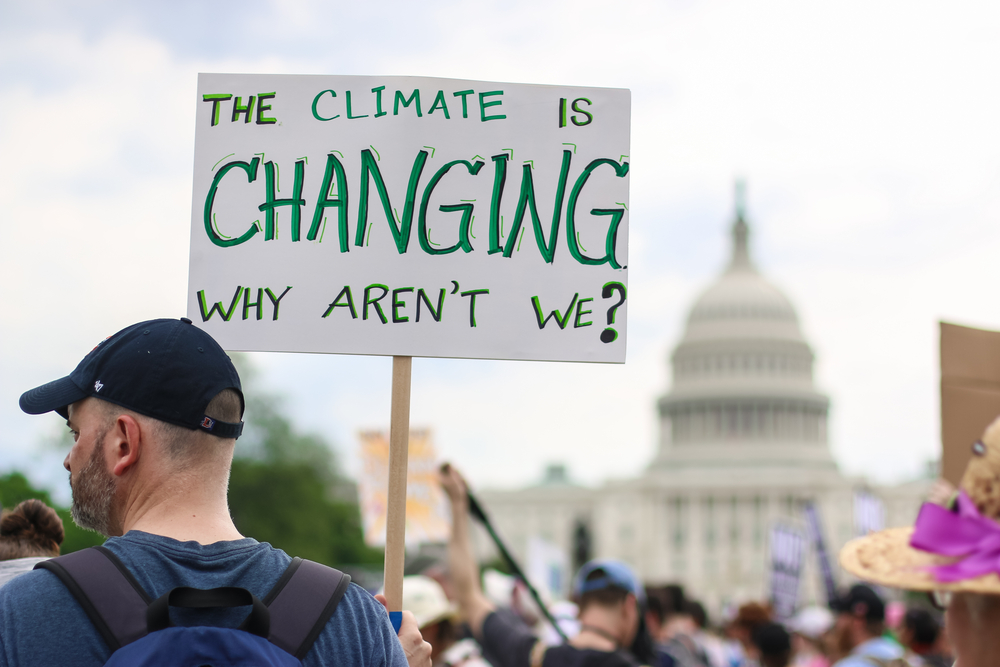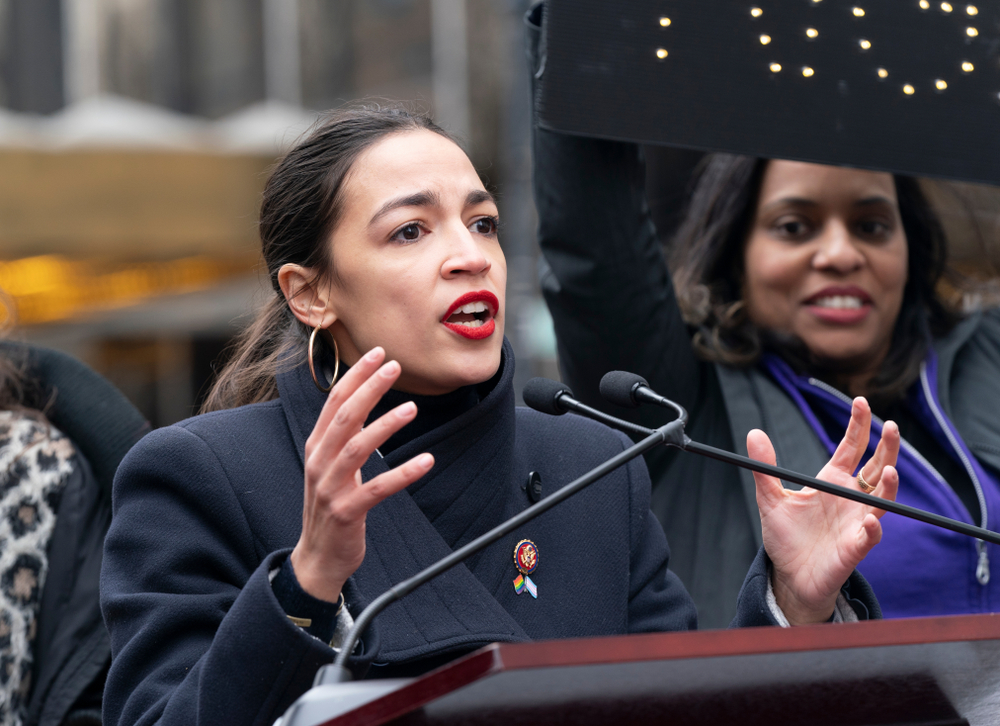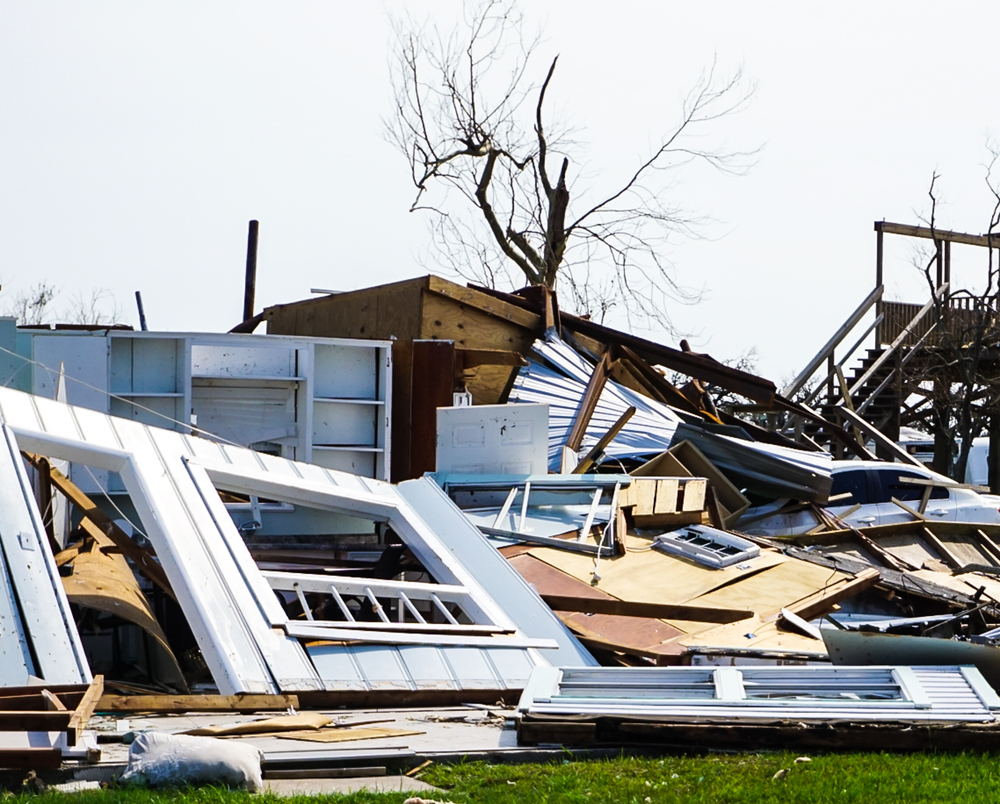Oliver Balch talks to the CEO of Ceres about the Green New Deal, Climate Action 100+, and why business has to be at the table in the fightback against the rollback of environmental legislation
Nowhere is life as an environmental activist an easy ride. Every green campaigner has stories of doors being shut and conversations closed down. Yet few face a harder slog than those working today in Donald Trump’s America.
News of environmental measures encountering regulatory roll-back are almost daily. Right now, rules on mercury pollution are coming under fire. Before, it was the turn of methane levels. Before that, vehicle emissions.
Mindy Lubber, a former litigator and regional director for the US Environmental Protection Agency, is not one to mince words. “This administration publicly and privately is trying to roll back environmental regulations that I was part of creating or part of implementing. And it's devastating.”
Fortunately, she is not one for giving up. As chief executive of Ceres, the influential Boston-based environmental non-profit, it’s her job to try and keep green issues on the political agenda.
The question is ‘how?’

With President Donald Trump in the White House, green advocates have precious little political leverage. Not only has Trump pulled the US out of the Paris Agreement, but his administration is awash with appointees who share his climate-sceptic views.
Lubber, who describes herself as an out-and-out pragmatist (“I just want the job done”), sees reasons for hope all the same.
First, US politics is not just about Trump. There’s a new generation of younger politicians coming up the ranks – Democrats for the most part, but not exclusively so – who get why green issues matter and are willing to act.
What the Green New Deal does beautifully is help change the debate … and force people to speak to these issues
By way of evidence, she points to the Green New Deal. Presented by the dynamic, freshman Congresswoman Alexandria Ocasio-Cortez, the proposal advances a sweeping economic stimulus package to promote green growth and combat global warming.
Lubber has so far resisted adding Ceres’ name to the high-profile plan on the grounds that it is “still conceptual”. Ceres, as a business-backed organisation, represents some of the US’s largest companies and investors. If they sign something, she says, they generally want details.
But as a shot-in the-arm for discussions on Capitol Hill about environmental matters and the importance of a lower-carbon economy, she welcomes the move without reserve.

“What the Green New Deal does beautifully is help change the debate … and force people to speak to these issues. Just getting everybody on the record will be very important.”
Second, she observes a definite shift in public mood around climate change. For decades, US citizens have been fed the argument that climate regulation represents yet more red tape that will cost American jobs and reduce economic competitiveness.
At long last, Lubber sees cracks in that discourse emerging. She credits the effects of climate change for finally breaking through to people. The recent devastating hurricanes that have swept Houston, Puerto Rico, and the Florida Keys mean people in the US are now feeling, living, and seeing climate change.
A Yale study reveals that more than seven in ten Americans now say climate change is important to them
Recent poll data backs her up. A Yale study, for example, reveals that more than 72% of Americans now say climate change is important to them – the highest level since the researchers started asking the question back in 2008.
“When President Obama was talking about it [climate], it felt like it was way off in the future … now, we’re seeing storms throughout the country that are exacerbated by climate change.”

And it’s not just everyday citizens who are waking up, she insists. Hank Paulson, former US Secretary of the Treasury, is on record as saying that the financial risks dwarf those of the sub-prime mortgage crisis, she notes. Even the federal government’s own estimations in the Fourth National Climate Assessment predict a 10% reduction in the economy (a verdict Trump dismissed on Twitter with: “I don’t believe it”).
“This is a colossal financial problem that hits all of us,” says Lubber. “If there were ever a time for the financial sector and the corporate sector to stand up and act, it’s now.”
Much of Ceres’ work centres on helping corporations do just that. The organisation’s staff of 100 or so work on a range of issues, from the big stuff (climate change, water, deforestation, human rights) through to the nerdy stuff (disclosure, governance, carbon asset risk).
Under Lubber’s direction, Ceres' Investor Network has been pushing the 100 largest greenhouse gas emitters in the world to clean up their act
The scope of its Company Network, whose affiliates include a hatful of Fortune 500 firms such as Apple, Ford, Gap and PepsiCo, is similarly wide-ranging. Membership comes with an expectation of action. A good number, for example, have signed up to Ceres’ Commit to Climate initiative to go 100% renewable.
Ceres has also mustered substantial backing from the world of US finance. Its Investor Network on Climate Risk and Sustainability currently comprises 159 institutional investors, with over $25trn in collective assets under management.
Under Lubber’s personal direction, this influential group has been pushing the 100 largest greenhouse gas emitters in the world to clean up their act. Ceres is one of five partner organisations behind the Climate Action 100+ initiative, launched at the December 2017, and singled out by the French government as one of the dozen key programmes for combatting climate change.
As her heart sinks on listening to yet another item about regulatory rollbacks on the morning news, one final thought keeps her going: namely, that the Trump era won’t last forever.
Sure, for the next two years, the political situation looks pretty grim. “I wish I could tell you we were going to move forward, but that would not be realistic or honest to say to you,” she admits.
But should Trump lose the 2020 presidential election, then the political landscape could suddenly look very different, very quickly, she reasons.
Away from Washington, Lubber sees real opportunities for political progress at the city and state level
“I hope we’ll then have the ability to start putting back the regulatory frameworks that are being dismantled.”
Lubber sees the next couple of years as ones of consolidation and preparation. Ceres is continuing to campaign vigorously on a number of fronts, with advocacy around a fixed carbon price very high of its list.

Away from Washington, she sees real opportunities for political progress at the city and state level. Over recent years, the organisation has worked closely with state legislators to promote energy reforms in California, for example – a relationship it hopes to maintain under the new administration of Governor Gavin Newsom.
Ceres is also a strong supporter of the We Are Still In initiative, a cross-sector coalition of non-federal legislators and businesses that have pledged to pursue the Paris Agreement despite Trump’s withdrawal.
In that spirit, L'Oréal USA recently pledged to make all its 21 manufacturing and distribution facilities carbon-neutral by the end of this year. Along with Adobe, Gap, Levi Strauss and Mars, it has also joined the growing list of US companies now committed to set science-based emissions reduction targets.
What we really bring to the debate is a voice that wasn’t in it before
Having sat on the other side of the fence for many years, this ex-public servant knows the “extraordinary power and clout” that the voice of business can bring.
“Lawmakers expect to hear from my colleagues, whether it's in the grassroots movement or in the traditional environmental movement … what we [business] really bring to the debate is a voice that wasn’t in it before.”
Of course, for every progressive company lobbying in favour of climate action, there are a dozen arguing against it. Even within individual corporations, such contradictory positions can be in evidence.
Her message to those companies is simple: “It’s just not okay.” If Ceres’ signatory companies are going to claim sustainability leadership, as she told them at the organisation’s most recent annual meeting, then their lobbying needs to match up.
None of the companies Ceres works with is “pure”, she admits: “But if we can bring in more players, as I think we have in many states, and be the difference, then that’s a good step forward.”
As for positives about policy-led change under the Trump regime, she draws two main lessons. The first is the importance of multiple angles of attack. Business leaders may never join street demonstrations, but the importance of direct action is unequivocal.
I can think of no big issue that wasn't a cacophony of tactics and strategies for change
“I can think of no big issue – on healthcare, on LGBT, on South Africa, on anything – that wasn't a cacophony of tactics and strategies for change,” she states.
It shows that business has a place at the table, despite the deep suspicions of many green groups; and that political partisanship on environmental issues needs to stop.
The other lesson Lubber takes from this dark period for environmental politics is a self-corrective of sorts. The climate debate won’t be won on economics alone; it needs a human side, too, and the involvement of communities.

“If we look at who is most impacted by the hurricanes – take New Orleans for example – these are working people, already of modest means, with their homes and livelihoods destroyed. We see this time after time – the people who are hurt the most by natural disasters are often hit the hardest and have the most difficulty recovering.”
This applies to the victims of general environmental pollution, such as toxics in drinking water or air pollution. “It’s lower-income communities that are most often closest to these polluted areas. How do we strengthen the resiliency of all communities? These communities, as well as grassroots organisations, need to be at the table as a part of these discussions and decisions.”
Under Lubber's pragmatic yet principled leadership, Ceres has played an increasingly influential role in convincing and corralling US corporations to take to the stump more boldly. And there they must stay, Trump or no Trump.
CV: Mindy Lubber
Ceres, president & chief executive
2003 -
Earth Day Network’s Climate Visionary Award winner
2016
Skoll Foundation's Social Entrepreneur Award winner
2006
US Environmental Protection Agency, regional administrator
1999-2001
US Environmental Protection Agency, senior policy adviser
1995-1999
Founder, Green Century Capital Management
1991
Mindy Lubber will be one of over 100 speakers at Ethical Corporation’s Responsible Business Summit New York 18-19 March.
This article is part of our monthly Disruptor series and also featured in our December magazine along with:
Climate change is the biggest ethical issue the Church of England faces
Lucas Joppa’s mission to use Microsoft’s computational might for good
How quiet-spoken Gabrielle Ginér is making a big noise on climate at BT
Climate Action 100+ Green New Deal #disruptors Commit to Climate We Are Still In


